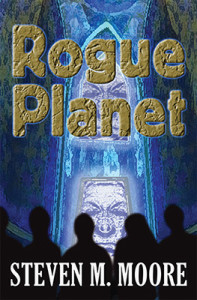Should authors be political?
My opinion of Stephen King improved when he testified against the Penguin Random House and Simon & Schuster merger. To be honest, though, that was a “safe protest” for the prolific horror writer because it was associated with traditional publishing (and motivated by self-interest?) It made me revisit the oft-thought question: Should authors be political? Especially in these trying times of nasty bickering and division, not just in the US but also around the world, any reasonable answer to the question might have wings.
We usually can’t analyze an author’s storytelling to determine their politics. I express that no-no explicitly in my copyright statements now: Opinions of my characters are not necessarily mine. In fact, mine might be just the opposite! This should be the implicit policy for every author because, in fiction, our characters can be good, evil, or somewhere in between.
While my recent novels certainly reflect some of my negative opinions about fascism and fascist personalities, most are more like morality plays than political statements. That’s because they’re about good versus evil. It’s also because I believe in reasoned and civil discourse that define a true democracy.
Yet there’s nothing wrong with politics in fiction per se. Orwell’s 1984 is a classic that people should pay attention to; Bradbury’s Fahrenheit 451 is a lesson about how dangerous censorship and book banning, currently all too common now in the US, can become; and stories about violence against ethnic groups, women, and gays are important for our times as well. You can live in solitude in the Maine woods, but you can experience in the evil plaguing our country and the world from your armchair by reading a book. Or educate yourself in many other ways!
There’s a whole universe of political statements, of course. Ayn Rand’s are probably the worst, but military fiction that overly celebrates violence and killing can be over the top as well. And then there’s porn. Yet historical truth cannot be neglected: The Romans were brutal and cruel, as were the Nazis. Is portraying them correctly in the historical sense wrong? Clearly the borders between good storytelling and political propaganda are often blurry and change with the times. Fanny Hill was initially scandalous; the “Fifty Shades” series made it look rather tame. But most prudes, especially in red states, would probably ban both. Huckleberry Finn isn’t racist; it’s only a reflection of Mark Twain’s milieu, which was (and, in many of those red states and elsewhere, still is). To Kill a Mockingbird is racist; it’s author probably wasn’t, and was a friend of Capote. Ender’s Game was homophobic but maybe not as much as the author, but it’s one hell of a story (and much better than other books in the series). Etc. Etc.
A good story can be created by anyone, irrespective of their politics. But let’s not forget that politics can also make a good story!
***
 Comments are always welcome! (Please follow the rules listed on the “Join the Conversation” web page.)
Comments are always welcome! (Please follow the rules listed on the “Join the Conversation” web page.)
Rogue Planet. The intense political theme of an evil theocracy that murders anyone who fights against it doesn’t occur often enough. (Iran and its sycophantic groups in Gaza and Lebanon represent the obvious model, of course.) This stand-alone novel can be considered a logical extension of the “Chaos Chronicles Trilogy” to a planet that suffers under such a theocracy that takes over after murdering the old king. Unfortunately for the religious fanatics running that theocracy, they failed to eliminate the old king’s son who becomes the rebellion’s leader. Call it political sci-fi, military sci-fi, or Game of Thrones-like fantasy, it’s still hard sci-fi (there are no dragons…) that might remind you a bit of Dune (…yet no sand worms), and a sci-fi adventure about a rebellion on a strange planet. Available in ebook and paper format wherever quality sci-fi literature is sold.
Around the world and to the stars! In libris libertas!
